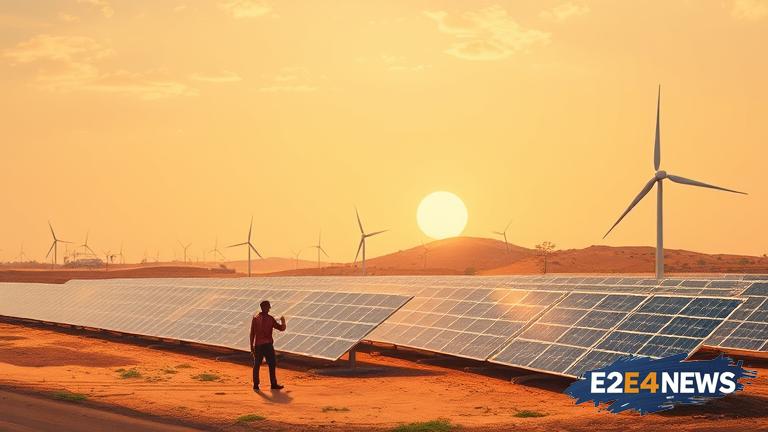The African continent is witnessing a significant surge in solar energy adoption, with 20 countries shattering records in solar panel installations and renewable power generation. This remarkable growth is driven by declining solar panel costs, improved technology, and increasing demand for clean energy. As the world transitions towards a low-carbon economy, African countries are poised to play a vital role in the global renewable energy landscape. South Africa, Egypt, and Morocco are among the top performers, with significant investments in solar energy infrastructure. The African Development Bank has pledged to support the development of 10,000 MW of solar energy in the continent by 2025. The International Renewable Energy Agency (IRENA) has also launched initiatives to promote solar energy adoption in Africa. The solar energy boom in Africa is expected to create thousands of jobs, stimulate local economies, and reduce dependence on fossil fuels. Moreover, solar energy can provide electricity to millions of people in rural areas, improving their quality of life and access to basic services. The African Union has set ambitious targets to increase the share of renewable energy in the continent’s energy mix. Solar energy is becoming increasingly competitive with fossil fuels, making it an attractive option for African countries. The cost of solar panels has fallen by over 70% in the last decade, making it more accessible to consumers. Additionally, solar energy can help reduce greenhouse gas emissions, mitigating the impacts of climate change. The solar energy sector in Africa is attracting significant investments from international companies, creating new opportunities for growth and development. However, there are still challenges to be addressed, including infrastructure constraints, policy frameworks, and financing mechanisms. To overcome these challenges, African countries must develop comprehensive policies and regulatory frameworks to support the growth of the solar energy sector. Furthermore, international cooperation and knowledge sharing can help African countries leverage best practices and technologies to accelerate their transition to renewable energy. The solar energy boom in Africa is a testament to the continent’s commitment to sustainable development and its potential to become a global leader in renewable energy. As the demand for clean energy continues to grow, African countries are well-positioned to capitalize on this trend and create a brighter future for their citizens. The African solar energy market is expected to continue growing, driven by government support, declining costs, and increasing demand for renewable energy. In conclusion, the solar energy boom in Africa is a remarkable story of growth, innovation, and sustainability, with far-reaching implications for the continent’s economic, social, and environmental development. With the right policies, investments, and international cooperation, Africa can unlock its full potential in solar energy and become a beacon of hope for a cleaner, greener future.
